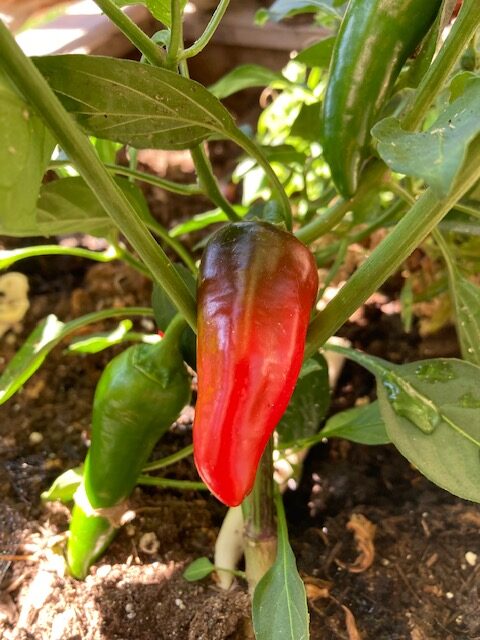
Is today your time to shine? Is this the day you turn from green to red, from young and uncertain to bold and blazing? From keeping your head down and blending in to taking a stand and making a difference? Everybody has time that they can shine, just like this chili pepper that starts out matching the color of the plant to serving notice by its color that it will have a serious impact on taste buds everywhere.
What will you do today that will induce someone to pick you and see what you’re made of? Where do you want to make an impact and how will you do that? Peppers are not large vegetables but they have a great potential to make a great difference in the taste of plenty of dishes. They are not something you overlook or forget. Do you want to be remembered? Then make sure you let your “redness” infuse you and be “pickable”.
Now not all hot peppers are alike. They come in all sorts of colors and all ranges of heat. They can be used just as is with seeds and ribs intact for hotter flavor or used without for a milder bite. They can be charred for extra smoky flavor or just chopped up raw. I used to chop up a couple of jalapeno peppers when I made spaghetti when I was single for an extra bite.
It takes time for the peppers to grow, ripen, and change color. And they tend to like tough soil to grow in, much like many herbs. It tends to intensify their flavor. So even if you have gone through tough times and it takes longer to grow you will ultimately have a time to shine. And when you do, make the most of it. You are worth it and made for it. Just like this chili pepper.

